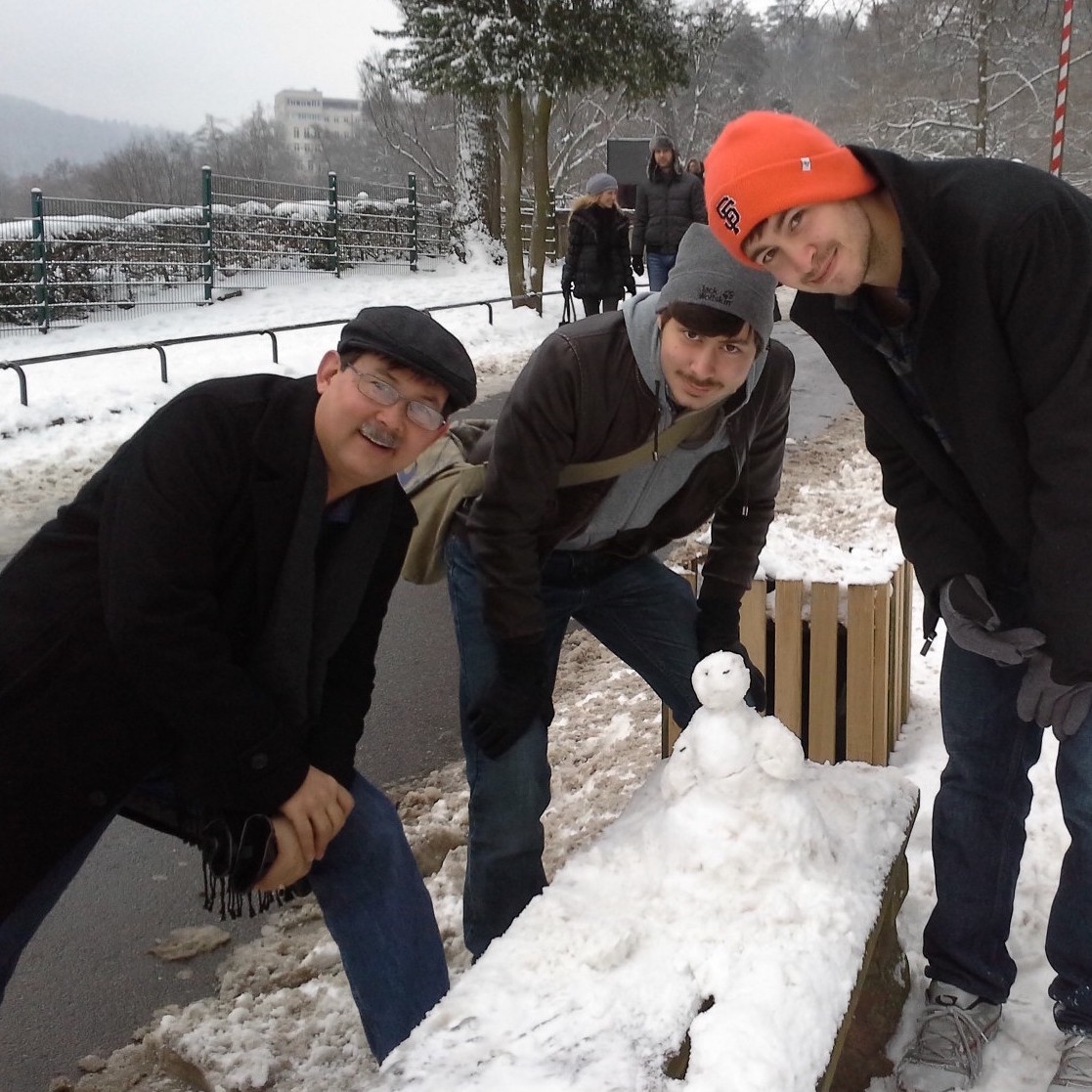
David Yeroshek
June 1, 2015
On this date we featured David Yeroshek, Coordinator and Instructor at Choices New Energy Academy at Foothill High School in the TwinRivers Unified School District.
We recently chatted with David about his experience as a "deckplate" engineer and how his father inspired him to became a teacher...
What did you do before becoming a teacher?
Before I started teaching, I was a Nuclear Shift Test Engineer at Mare Island Naval Shipyard. Our task was to refuel/overhaul and maintain support for naval nuclear submarines. I was what you call a “deckplate” engineer—most of my day was spent shipboard somewhere in the engineering spaces. My job was to determine and set plant conditions so that work and testing could be safely accomplished and to oversee acceptance testing once work was completed. The job required me to coordinate various shops (pipefitters, electricians, machinists, etc.), inspectors, radiological technicians and the ship’s crew to work together. I spent a lot of time cajoling, convincing, and general cat herding. To qualify for this position, besides (or in spite of) my engineering degree, I had one year of on the job training following a qualified engineer for three months at Electric Boat & Shipbuilding at Groton Connecticut on reactor systems, operations, testing and casualty procedures, another three-month school at Mare Island covering shipyard policy and casualty procedures, then a four-written exam and a two-hour oral board. I was at Mare Island for nine years, the last three years as an Assistant Chief Test Engineer. Two things convinced me to move on to a different job: the Cold War was winding down and they were closing naval shipyards at rapid pace; and I wanted to be able to spend time with my family. Working 10 hours a day, weekends and answering phone calls at 2:00 am really wasn’t conducive to a happy family.
How long have you been teaching, and how did you decide to become a teacher?
This will be my 24th year coming up. My father was an elementary school teacher, so graduating from high school I swore I would never become a teacher. I went into teaching for many of the same reasons my father did, family being the major motivation. He too came to teaching as his second career—he had been a technical editor & illustrator at General Dynamics for the Atlas program. In the sixties, a career in aerospace required moving the family every couple of years following the rise and fall of defense contracts. He wanted a stable, meaningful career where he could spend time with his family. He also wanted an outlet for his artistic talents. He taught art and science as an auxiliary teacher until Prop 13 put an end to those funds. He then went to a regular class room and later founded a grade 3-6 gifted loft class room with two other teachers. He built things for his classroom: a darkroom, silk screen frames, greenhouses, kilns and pottery wheels. He experimented in new technology and I remember him playing with a very early PC with a cassette drive memory. He was a firm believer in “better to ask forgiveness, than permission,” and was always trying new things and new ideas. In spite of all the hassles, trials and tribulations, he had fun and enjoyed teaching. He was my teaching hero and the reason I went into teaching.
Previous to your UCCI Institute participation, had you done any integration of CTE and academics?
Yes, I have been part of a California Partnership Academy since 2001. A Partnership Academy combines three academic subjects with a CTE class for a three year program in grades 10-12. Our students move together as a cohort and the three core academic and CTE teachers work together to develop an integrated program. I also participated in the Fall 2011 UCCI Institute in Santa Barbara on Green Energy. My three core teachers and I have also participated in the Buck Institute Summer Project Based Learning workshop and with CTE Online developing integrated, project-based units and lessons. The UCCI experience is different in that we are developing courses and not units or lessons, which is actually far more challenging.
What was your experience working with the teachers at the East Los Angeles College (ELAC) and CPA/PG&E UCCI Institutes?
The Summer 2014 UCCI Institute was a lot of work and we were kept busy all day! It was a very creative and productive environment. UCCI Programs Manager Sarah Fidelibus did a great job of keeping us focused and not chasing too many rabbits. I knew this group of teachers pretty well because we have been fortunate to have PG&E bring us together every summer for the last five years and this really helped [to create the UCCI course Electric Avenues]. In my previous experience at Santa Barbara it was a little harder to meld since all of us were strangers.
At the Winter 2015 Institute at East Los Angeles College, I was the CTE Content Advisor and not a writer so that was a different experience. It was difficult not jumping in and taking control, and just letting the participants find their own path. I really enjoyed the experience and get to do it again this July, at the Summer 2015 UCCI Institute in San Bernardino, helping teams create courses integrating the Laboratory Science (D) subject area with the Energy, Environment and Utilities CTE Industry Sector.
What are some of your favorite resources for Engineering educators?
-
CTE Online - Complete integrated units and lessons
-
Buck Institute, Project Based Learning - all the resources and information you could ever want on developing project based units and lessons
-
College & Career Academy Support Network (CCASN) - resources and curriculum and lots of other stuff
-
Education & Environmental Initiative (EEI) - a free, state-sponsored K-12 curriculum that teaches science and history-social science standards through an environmental lens.
